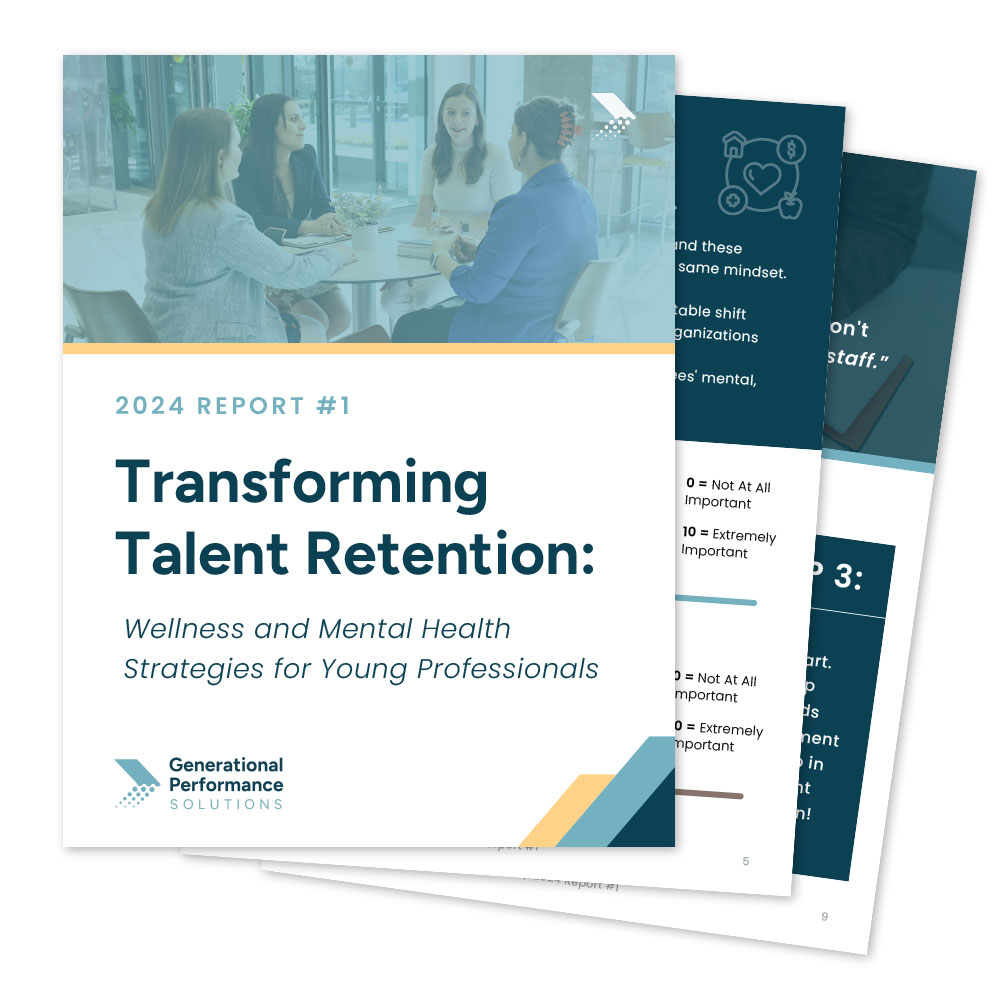We’ve all seen the headlines.
“Gen Z Doesn’t Want to Work.”
“Young Professionals Are Entitled.”
“The Kids Aren’t Alright.”
It’s easy to buy into these narratives—especially when they’re everywhere from LinkedIn posts to primetime news segments. But are they accurate? And more importantly, are they helpful when it comes to building high-performing teams?
Spoiler alert: probably not.
Where the “Poor Work Ethic” Perception Comes From
Let’s start with this: there have always been poor performers in every workplace, at every age. But when an older employee is disengaged, we often chalk it up to burnout or misalignment. When it’s a younger employee? We label it as generational. That double standard isn’t just unfair—it’s unproductive.
So why does this perception stick?
For one, expectations around work have changed. Gen Z and younger Millennials have grown up in a world that values flexibility, mental health, and digital fluency. They often prioritize balance, purpose, and transparency over top-down communication. These aren’t signs of a weak work ethic—they’re signs of evolving work values (and it’s not just young talent who is adapting to it!
Let’s Talk About the Frustration
If you’re a leader who feels like today’s younger workers aren’t showing up with the same drive or grit you expected—you’re not alone.
We hear this a lot from clients:
“They want promotions without putting in the time.”
“They clock out mentally when things get hard.”
“They care more about their lunch breaks than their deadlines.”
These experiences are real. And they’re frustrating—especially if you’ve built your career on showing up early, staying late, and doing whatever it takes.
But here’s the key: what looks like a lack of work ethic on the surface often has deeper roots.
Younger workers may approach accountability, communication, or success differently—not because they’re unwilling to work, but because they’ve come up in a completely different world of work. One shaped by remote capable work, mental health awareness, a pandemic, and the rise of automation.
It doesn’t mean the standard should drop. It means the path to meeting it might look different.
The Role of Communication and Clarity
One of the most common reasons younger professionals appear to “lack work ethic” is simple: unclear expectations.
Without clear definitions of success, deadlines, or communication norms, new hires—especially those early in their careers—are left guessing. And when leaders assume that their teams “should just know” how to perform, misunderstandings happen. Our founder, Kamber, often says “Common sense is not all that common anymore”, and it’s true. You know what they say about assumptions…
What if we could eliminate the grey areas that come from assuming the work will get done without setting expectations?
What some leaders see as apathy may actually be uncertainty. What feels like entitlement might just be a call for clarity.
And the good news? Most of this is solvable.
What Leaders Can Do Right Now
Here’s what we recommend to shift from frustration to high performance:
- Tighten your hiring process. The best way to avoid poor performers—of any age—is to get clear on values, expectations, and fit before you hire. Don’t just look for credentials; look for alignment.
- Define work ethic for your team. Instead of assuming everyone shares the same idea of what it means to “work hard,” get specific. What does accountability look like? What does great communication mean here? Spell it out for them.
- Create space for feedback and adaptation. Today’s younger workers are incredibly adaptable—but they expect the same from leadership. Build feedback loops that help you spot where breakdowns happen and improve performance in real time.
- Ditch the generational stereotypes. When we assume one generation is the problem, we miss the chance to create shared understanding. Lead the way in building bridges, not barriers.
Final Thoughts: Are the Kids Alright?
Yes—and they want to do meaningful work and work hard while doing it!
But like every generation before them, they need the right conditions, communication, and coaching to succeed. If you’re seeing performance gaps on your team, don’t assume it’s an age thing. Dig deeper. Align expectations. And lead with curiosity over criticism.
Because the real issue isn’t about one generation—it’s about how we work together.
Did you like this week’s post? Then you might like these posts below.
An Updated Conversation on Hybrid and Return to Work
Transforming Talent Retention: The Benefits and Wellness Report
How to Get Your Team to Show Up to Work On Time
Ready to transform the way your team works across generations?
At Generational Performance Solutions, we help organizations build cultures rooted in clarity, accountability, and collaboration—so every generation can perform at their best. Let’s talk about how you can lead with intention and drive real results. Schedule your Free Planning Session today.

